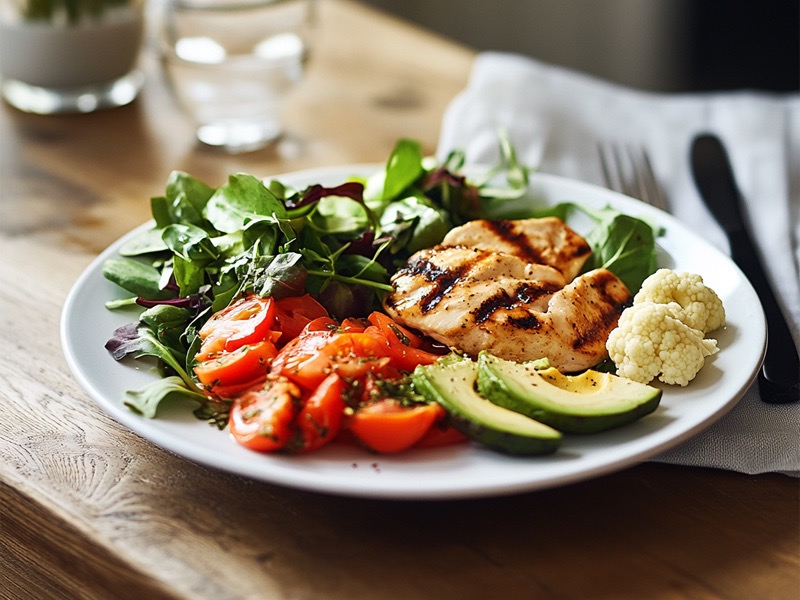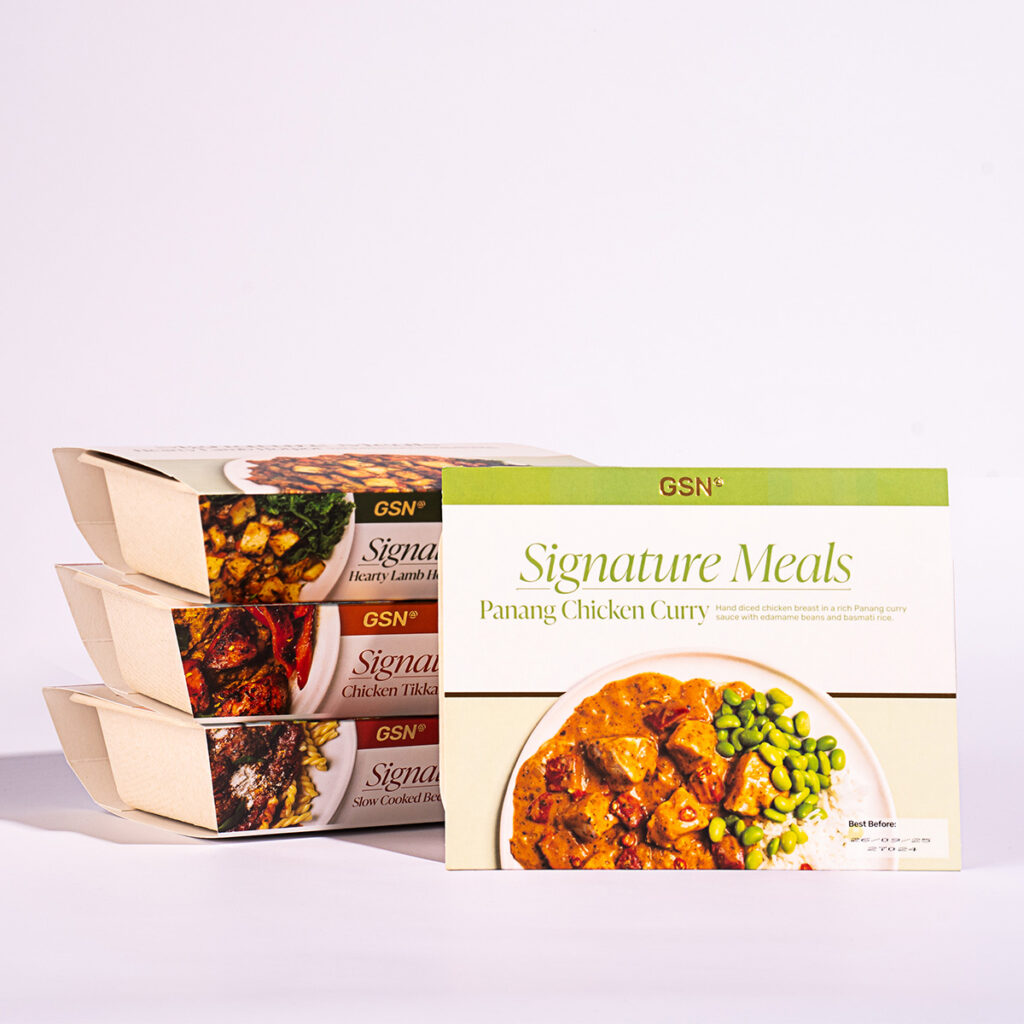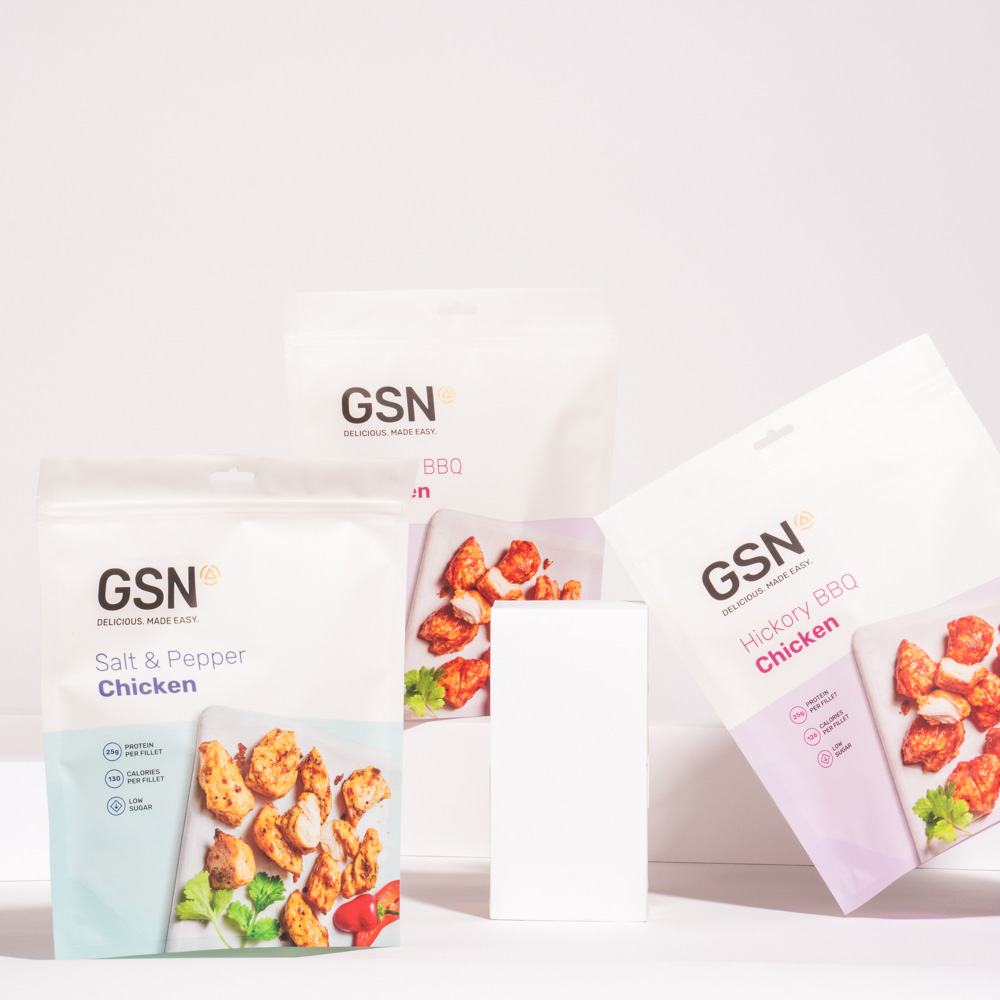10 Popular January Fad Diets: Pros, Cons and Alternatives
Read Time: 7 mins
TL;DR (Too Long; Didn’t Read)
January fad diets are what many people turn to with hopes of quick weight loss. While some offer short-term results, they can be unsustainable and harmful in the long run. In this article, we explore 10 popular January fad diets, their pros and cons, and recommend healthier alternatives that are more sustainable.
If you’re looking for practical, long-term solutions to health and wellness, consider balanced, nutrient-rich options like our Pots O Gold or Signature Meals, which can fit seamlessly into your routine.
We conclude the article with our top tips for healthy dieting.

10 Popular January Fad Diets: Pros, Cons, and Alternatives
The start of the New Year often brings a renewed focus on fitness, weight loss, and health. For many, this means experimenting with popular January fad diets in the hope of achieving fast results.
However, while these diets may offer quick fixes, most are difficult to maintain and come with health risks. Let’s take a closer look at 10 popular January fad diets, their pros and cons, and how you can approach your health goals more sustainably in the long run.
1. Atkins Diet
The Atkins Diet promotes a low-carb, high-protein approach that puts your body in a fat-burning state by reducing carbohydrate intake.
Pros:
- Rapid weight loss, especially in the early stages.
- High-protein meals lead to increased satiety (how full you are, feeling full), reducing hunger.
Cons:
- Severe restriction of carbs can lead to nutrient deficiencies, particularly fibre and essential vitamins.
- Side effects may include fatigue, constipation, and bad breath during adaptation.
The Atkins Diet may work temporarily, but its long-term sustainability is questionable. For a more balanced approach, consider our Ready-Cooked Chicken or Signature Meals which offer high protein and are rich in essential nutrients while being low in carbs.
Learn more about the Atkins Diet
2. Keto Diet
The Keto Diet involves drastically reducing carbs and replacing them with fats to push the body into a state of ‘ketosis’, where fat becomes the primary energy source.
Pros:
- Effective for rapid weight loss and improving insulin sensitivity.
- May reduce appetite by promoting satiety, making it easier to adhere to a caloric deficit.
Cons:
- Difficult to maintain due to its strict nature.
- Potential side effects include “keto flu,” digestive issues, and nutrient deficiencies, particularly in fibre and vitamins.
If you’re looking for a way to support ketosis while maintaining nutritional balance, our High-Protein Wraps provide a healthier, more sustainable protein-packed option.
Learn more about the Keto Diet.
3. Paleo Diet
The Paleo Diet advocates for eating like our ancient ancestors, focusing on whole foods like meat, fish, fruits, vegetables, nuts, and seeds while excluding processed foods, grains, and dairy.
Pros:
- Encourages eating nutrient-dense, whole foods.
- May improve blood sugar control and reduce inflammation.
Cons:
- Excludes entire food groups, which can lead to deficiencies, particularly in calcium and vitamin D.
- Can be expensive and time-consuming to follow.
A sustainable way to follow the principles of the Paleo Diet is to focus on nutrient-dense, minimally processed meals. Our Signature Meals are made with whole foods and contain lean proteins that align well with a Paleo-friendly approach, this is one of the more complicated January fad diets.
Learn more about the Paleo Diet.

4. Juice Cleanses
Juice cleanses involve consuming only fruit and vegetable juices for a set period in an attempt to detoxify the body and promote quick weight loss.
Pros:
- An increase in fruit and vegetable intake will improve the body’s access to essential vitamins and minerals.
- This may lead to initial weight loss due to the extreme caloric restriction.
Cons:
- Lacks essential macronutrients like protein and fats, which are crucial for muscle preservation and overall health.
- Results are often short-lived, and you may experience a rebound weight gain once the cleanse is over.
Instead of doing an extreme juice cleanse, try incorporating nutrient-rich foods into your daily meals. Pots of Gold provide a healthy, well-rounded meal with sufficient protein, fats, and carbs, supporting long-term energy without drastic restriction.
Learn more about Juice Cleanses.
5. Intermittent Fasting
Intermittent fasting (IF) involves alternating periods of eating and fasting, with popular methods including the 16:8 and 5:2 protocols. The 16:8 protocol involves fasting for 16 hours and eating within an 8-hour window, while the 5:2 protocol involves eating normally for five days and restricting calorie intake to about 500-600 calories on the other two days.
Pros:
- Flexible and can fit into various lifestyles.
- May improve insulin sensitivity and promote fat loss by reducing overall caloric intake.
Cons:
- Can lead to overeating during eating windows if not properly managed.
- May not be suitable for individuals with certain medical conditions or high activity levels.
To make intermittent fasting more manageable, pair it with balanced, nutritious meals that support muscle recovery. Ready-Cooked Chicken is a great option for a quick and protein-rich meal during eating windows. It’s flexible and can save you time and money, you can find our recipe suggestions. here.
Learn more about Intermittent Fasting.
6. Cabbage Soup Diet
The Cabbage Soup Diet involves eating large quantities of cabbage soup for seven days, alongside a few other low-calorie foods.
Pros:
- Promotes rapid weight loss due to extreme calorie restriction.
- Simple and affordable to follow.
Cons:
- Severely lacks protein, fats, and essential nutrients, which can lead to muscle loss and other health issues.
- Unsustainable for long-term weight management.
Instead of focusing on a restrictive diet like the Cabbage Soup Diet, consider healthier, more balanced options like incorporating a single GSN Pot O Gold or Signature Meal into your daily routine. These are designed to support healthy weight management and are packed with essential nutrients.
Learn more about the Cabbage Soup Diet. If you’d like to give it a go, here’s a recipe!

7. Grapefruit Diet
The Grapefruit Diet revolves around eating grapefruit or drinking its juice with every meal, based on the belief that it contains fat-burning enzymes.
Pros:
- Increases fruit intake and encourages smaller portions.
- Simple to follow with no complex meal preparation required.
Cons:
- No substantial scientific evidence supports the idea that grapefruit can directly burn fat.
- Extremely low-calorie, which can lead to fatigue and nutritional deficiencies.
For a balanced approach to weight loss, a high-protein wrap once a day will provide a nutrient-dense alternative that supports muscle maintenance and satiety while keeping calories in check.
Learn more about the Grapefruit Diet.
8. South Beach Diet
The South Beach Diet focuses on low-glycemic-index foods and healthy fats, beginning with a restrictive phase before gradually reintroducing carbs.
Pros:
- Encourages balanced eating and healthy carb choices, which can lead to sustained weight loss.
- The gradual approach to carb introduction makes it easier to adhere to long-term.
Cons:
- The restrictive first phase can lead to side effects like fatigue and irritability.
- It relies on processed South Beach-branded foods for convenience, which can be expensive.
To align with the South Beach Diet principles, incorporate healthy, high-protein meals into your routine, such as a Signature Meal dinner and a Pot of Gold for breakfast or lunch. These meals are designed to support a healthy lifestyle with balanced macros.
Learn more about the South Beach Diet.
9. Master Cleanse
The Master Cleanse is a liquid-only detox diet that involves drinking a mixture of water, lemon juice, maple syrup, and cayenne pepper for 10 days.
Pros:
- Promotes rapid weight loss through extreme calorie restriction.
- Often marketed as a detox solution (though this claim is not scientifically proven).
Cons:
- Extremely low-calorie and lacks essential nutrients, which can lead to muscle loss, fatigue, and health risks.
- It’s a short-term fix, with little evidence to support long-term benefits.
For sustainable weight loss, high-protein wraps offer a nutrient-dense, easy-to-prepare meal which is ready in 3 minutes and aligns with detoxing in a healthy, balanced way. Swapping your usual lunchtime meal deal for a GSN wrap will provide a great basis for calorie saving.
Learn more about the Master Cleanse.

10. Carnivore Diet
The Carnivore Diet is a meat-only diet that eliminates all plant-based foods, focusing solely on animal products.
Pros:
- High in protein and fat, which can help with satiety and muscle preservation.
- Simple to follow with no need to count calories.
Cons:
- Lack of key nutrients from fruits, vegetables, and whole grains.
- Long-term health effects are not well-studied, and it may pose risks for heart health.
A balanced alternative would be to focus on lean protein sources, like Ready-Cooked chicken, while incorporating a variety of whole foods for better nutrient balance.
Learn more about the Carnivore Diet.
Lastly: Chicken, Broccoli, and Rice Diet
We guess a large number of our customers, especially those in the Body Building arena know this diet well! The Chicken, Broccoli, and Rice option is probably one of THE most popular January fad diets and is a highly restrictive meal plan that focuses on consuming only chicken, broccoli, and rice, often promoted for quick weight loss through extreme calorie restriction and portion control.
Pros:
- The diet is easy to follow with minimal meal prep, making it convenient for those looking for a no-fuss approach.
- Chicken provides lean, high-quality protein that supports muscle retention and fat loss, while broccoli offers fibre and important vitamins.
- By eating simple, low-calorie foods in controlled portions, the diet can lead to rapid weight loss in the short term.
Cons:
- The diet is overly restrictive and lacks variety, leading to potential deficiencies in essential nutrients like healthy fats, vitamins, and minerals.
- Due to its monotonous nature, the Chicken, Broccoli, and Rice Diet is difficult to maintain long-term and may lead to feelings of deprivation and eventual overeating.
- The repetitive meals can make it hard to stay motivated or enjoy eating, which may result in a lack of adherence over time.
If you think you’ll struggle with the restrictive nature of the Chicken, Broccoli, and Rice Diet, try a more balanced approach by including Signature Meals, Ready-Cooked Chicken and Pots of Gold, these offer easy, nutritious options to keep you on track without feeling deprived.

Healthy Dieting Tips
- Understand macronutrients: Balance your intake of carbs, proteins, and fats to meet your energy needs, especially if you’re working out regularly. This article from the American Heart Association explains the role of macronutrients in your diet.
- Focus on whole foods: Opt for minimally processed foods, which provide better nutrition and help keep you feeling full longer. Better Health Channel discusses the benefits of whole foods in maintaining overall health.
- Set realistic goals: Aim for steady, sustainable weight loss (1-2 lbs per week) rather than drastic, short-term changes. This ensures long-term success and avoids the pitfalls of fad diets.
- Stay hydrated: Drinking plenty of water is essential for maintaining hydration levels, supporting metabolic processes, and improving workout performance. The NHS offers in-depth guidance on how to hydrate for optimal health.
- Incorporate exercise: Regular physical activity is key to maintaining weight loss and improving overall health. The National Academy of Sports Medicine provides valuable exercise and nutrition tips to help you maximize your results.
- Be consistent: Small, long-term changes are more effective than quick, drastic fixes. Focus on developing healthy habits that you can maintain for the long term.
By sticking to these principles and choosing balanced meals (like our products), you can achieve lasting results without the need for extreme dieting trends.






